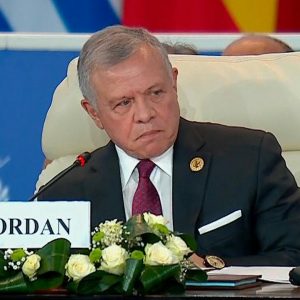Justice denied: Apartheid-era victims sue South African government
Families of murdered anti-apartheid activists demand $9 million for decades of failed prosecutions and suppressed investigations
PRETORIA, South Africa (MNTV) – Nearly 40 years after one of South Africa’s most notorious apartheid-era killings, families of victims are taking the government to court, accusing authorities of decades of inaction in holding perpetrators accountable.
A group of 25 survivors and families of those murdered under the apartheid regime have filed a lawsuit against President Cyril Ramaphosa’s administration, seeking 167 million rand ($9 million) in damages.
The legal action alleges that the government has “grossly failed” to investigate and prosecute individuals responsible for some of the most heinous racial crimes of the apartheid era, including the killings of four anti-apartheid activists in 1985.
The case centers around what became known as the Cradock Four—four community leaders who were abducted, tortured, and murdered by apartheid security forces in the Eastern Cape province in June 1985.
The four men—Matthew Goniwe, Fort Calata, Sparrow Mkhonto, and Sicelo Mhlauli—were prominent activists in the fight against white minority rule. Their brutal deaths shocked the nation, fueling widespread protests and escalating the resistance movement that eventually led to the dismantling of apartheid in 1994.
Despite the landmark Truth and Reconciliation Commission (TRC) hearings in the late 1990s, which identified six police officials as responsible for the murders, no prosecutions ever took place.
The TRC had denied amnesty to the accused officers—Eric Alexander Taylor, Gerhardus Johannes Lotz, Nicolaas Janse van Rensburg, Johan van Zyl, Hermanus Barend du Plessis, and Colonel Harold Snyman—on the grounds that their crimes were too severe to be pardoned. Yet, successive governments failed to move forward with legal action.
By 2023, the last surviving accused official had died, ensuring that the families would never see justice in a criminal court. This, the plaintiffs argue, constitutes an “egregious violation” of their constitutional rights to truth and accountability.
The families first filed a lawsuit against the National Prosecuting Authority (NPA) and the South African police in 2021, demanding that the state finish its investigations and bring charges.
However, no significant progress was made until January 2024—months after the last accused officer had died. The decision to reopen an inquiry at such a late stage has raised further questions about whether South Africa’s post-apartheid governments deliberately avoided prosecuting apartheid-era crimes.
Critics have long accused the ruling African National Congress (ANC) of protecting former apartheid officials as part of a behind-the-scenes agreement with the white minority government during South Africa’s transition to democracy.
In 2021, a former NPA official testified in a separate case, alleging that former President Thabo Mbeki’s administration directly interfered in the TRC process and suppressed investigations into more than 400 apartheid-era crimes—including the Cradock Four case.
Mbeki, who served as South Africa’s president from 1999 to 2008, has denied these allegations.
In a statement in March 2024, he insisted, “We never interfered in the work of the National Prosecuting Authority (NPA).” However, for the families of apartheid-era victims, the absence of prosecutions speaks for itself.
Reconciliation v/s justice
Among the allegations is that high-ranking officials in post-apartheid administrations have chosen reconciliation over justice. Critics point to several cases where apartheid-era figures received lenient treatment, including the controversial parole granted to Colonel Eugene de Kock, a notorious assassin for the apartheid government.
De Kock, who was sentenced to life imprisonment for his role in multiple political assassinations, was released on parole in 2015—a decision approved under Ramaphosa’s government.
For the families of the Cradock Four and other victims of apartheid violence, the case is not just about financial compensation. The lawsuit specifically names President Ramaphosa, the justice and police ministers, the head of the NPA, and the national police commissioner, holding them directly responsible for denying families their rights to justice, truth, and closure.
Many of the survivors say that the decades-long delays have prolonged their trauma, making it impossible to move on from their painful pasts. The wounds of apartheid, they argue, remain open because the South African state has failed to ensure accountability.
“The government let those murderers die without ever answering for their crimes,” said one relative of the Cradock Four. “For 40 years, we have waited. We will not stop fighting.”
The Economic Freedom Fighters (EFF), a radical opposition party, has thrown its support behind the families, condemning the ANC’s handling of apartheid-era cases. “It is unacceptable that over 30 years after the fall of apartheid, these families still do not have answers or closure about the fate of their loved ones,” the party said in a statement on Thursday.
With court proceedings scheduled to begin in June 2025, the lawsuit marks a turning point in the long-standing struggle for post-apartheid accountability. While financial damages alone cannot undo decades of injustice, families of the victims say their ultimate goal is to force the government to acknowledge its failures and prevent history from repeating itself.
“We are not just suing for money,” said another family member. “We are suing so that this country does not forget what happened. We want the truth, and we want those responsible—whether in the past or today—to answer for their actions.”
For many South Africans, the case is a test of whether the post-apartheid government is truly committed to justice—or if it has been complicit in shielding those who once upheld the brutal system of racial oppression.












